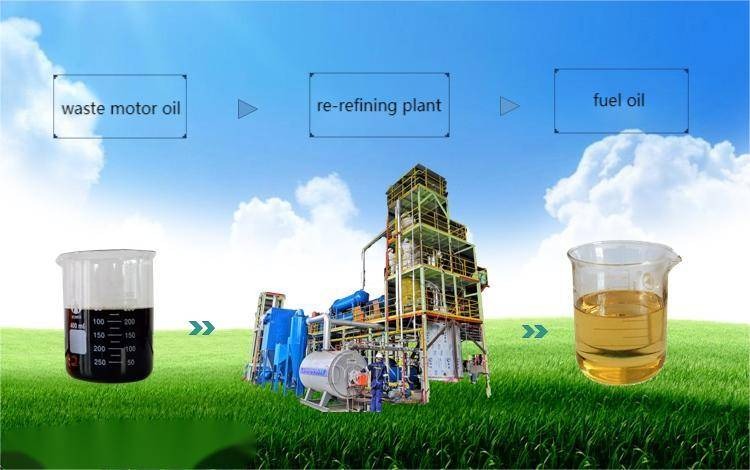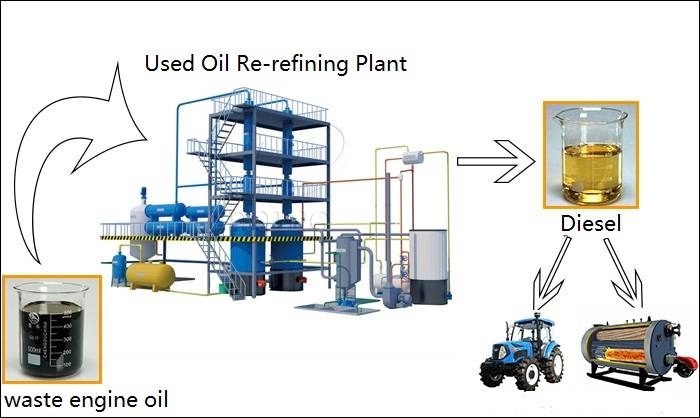What Types of Waste Oil Can Be Recycled?
The other day, I was hanging out in a garage while a mechanic drained a filthy bucket of engine oil out of a leaky car. He glanced at the gunk in the bucket and said, “Can’t believe people just toss this out. Wish they knew the stuff gets recycled.”
That stuck with me. We hear a lot about sorting garbage, but oil can be confusing. You’ve got frying pan grease, lawn mower oil, gear oil, and that leftover paint thinner. Do they all fit in the same container?
Most of us aren’t sure, and honestly, the rules seem like a secret code nobody wants to crack. So I put together a short, bullet-proof cheat sheet. It tells you the types of oil you can toss in the recycle bin, the ones you definitely can’t, and what really goes down when they recycle it.
What types of waste oil can be recycled?
asy memory trick:
- Oil for machines = recyclable.
- Oil for food =recyclable.
- Oil mixed with chemicals = not recyclable (special hazardous waste).
Now let’s break it down by category
Recyclable-Industrial & Machine Oils
If it comes from cars, trucks, or heavy machines, chances are it can be recycled. These oils are valuable because they can be cleaned and reused.
| Type of Oil | Description | Recyclable? |
| Engine oil / Motor oil | Commonly drained from cars and trucks | Yes |
| Diesel oil | Leftover from diesel engines | Yes |
| Gear oil | Thick, gearbox oil | Yes |
| Transmission oil (ATF) | Automatic gearboxes | Yes |
| Lubricating oil | All-purpose machine oil | Yes |
| Hydraulic oil | Heavy machinery, lifts, diggers | Yes |
| Compressor oil | Air compressors, cooling machines | Yes |
| Turbine oil | Power plants, jet engines | Yes |
| Transformer oil | Electrical insulation oil | Yes |
| Cracking oil | Petrochemical byproduct | Yes |
| Petroleum-based oils | Boiler or heating fuel oils | Yes |
| Cutting / Emulsified oil | Used in machining, needs special handling | Yes (with care) |
| Refrigeration oil | Cooling & refrigeration systems | Yes |
If it runs a car, powers a machine, or keeps equipment moving, it can be recycled.
Recyclable-Cooking Oils & Kitchen Fats
Yes, your kitchen oil is valuable too. If it was once food, it can become fuel.
| Type of Oil | Description | Recyclable? |
| Used frying oil | Household leftover cooking oil | Yes |
| Restaurant grease / animal fats | Bulk kitchen waste oils | Yes |
| Vegetable oils | Plant-based oils (soybean, sunflower, palm) | Restaurant grease/animal fats |
Not recyclable-Special Chemical Oils
Not all oils are safe for recycling. Once mixed with chemicals, they turn into hazardous waste. If it smells like paint, solvent, or chemicals → hazardous waste, not recycling.
| Type of Oil | Description | Recyclable? |
| Paint thinners / solvent oils | Toxic solvents, paint-related | No |
| Oil mixed with water/antifreeze/cleaners | Cross-contaminated | No |
| Industrial chemical oils | Factory waste oils with heavy metals | No |
| Oil + pesticides/fertilizers | Highly toxic mix | No |
Why can some oils be recycled but not others?
Here’s the deal:
- Motor oil and other machine oils are “grimy” versions of the same base oil you’d start with, and that base oil can be cleaned up and used again.
- Leftover frying oil is still just a natural fat. It can be filtered, cleaned, and turned into eco-friendly biodiesel.
- Chemical oils are the tricky ones. They get mixed with stuff like paint thinner, toxins, and heavy metals. Once that cocktail is made, the cost and danger of recycling it the right way go way up.
That’s why keeping oils separate is so important. If you pour your leftover cooking oil into a can of paint thinner, you’ve just turned something recyclable into hazardous waste.
What happens to waste oil after recycling?
I always figured that any used oil just vanished once someone picked it up. Turns out, it’s way more interesting than that:
- Old cooking oil gets a second chance as biodiesel, pumping power to buses, trucks, and even planes.
- Motor oil gets cleaned up and reused as fresh lubricant, or it gets turned into fuel for factories.
- Grease trap gunk, after careful cleaning, can even be turned into an additive for animal feed, helping keep livestock healthy.
So, the next time you drop off oil for recycling, think about it: you just helped a bus keep moving, a factory hum, or a farm work even better than before. How awesome is that?
Where do different types of waste oil get recycled?
The tricky part isn’t just knowing what is recyclable, but also where to take it.
| Type of Oil | Where to Recycle | Tips Before Drop-off |
| Machine oils (engine, gear, hydraulic, etc.) | Auto shops, gas stations, hazardous waste centers | Seal tightly, don’t mix with other liquids |
| Cooking oils | Community recycling bins, biodiesel collection points, some restaurants | Let it cool, store in bottles or jugs |
| Special chemical oils | Hazardous waste collection sites only | Never pour down drains—serious pollution risk |
Many cities now have apps or websites (like “waste sorting” or “recycling guide”) where you just type in the item and it shows you the nearest drop-off point.
(read more: Where Can I Drop Off My Used Motor Oil for Recycling?)
Wrap-up
Food oil and machine oil = Yes. Chemical oil = No
| Type of Oil | Everyday Example | Recyclable? | Memory Tip |
| Industrial / Machine Oil | Motor oil, hydraulic oil, gear oil | Yes | “Oil for machines → recycle” |
| Cooking Oil / Kitchen Fats | Used frying oil, leftover restaurant grease | Yes | “Oil you can eat → recycle” |
| Special Chemical Oils | Paint thinner, solvent-based oils, mixed chemicals | No | “Chemical oil → not recycle” |
Recycling’s super easy—just remember: anything from your car or your kitchen can probably get a second life. If something smells like the stuff you’d use to touch up a wall or scrape off boat gunk from the dock, you can’t toss it in the regular trash. That stuff’s toxic, so look for the hazardous waste drop-off in your area.









